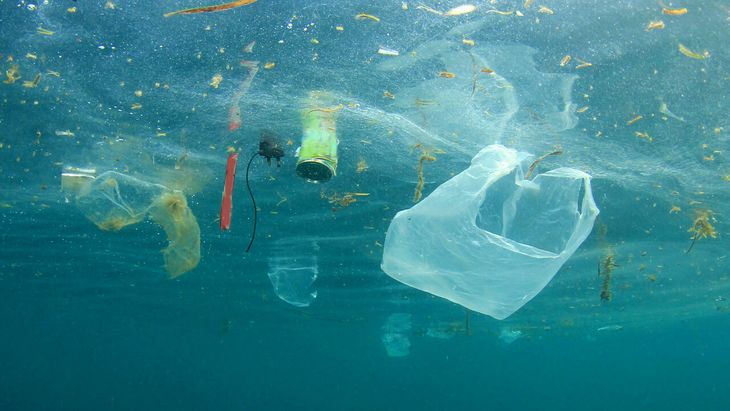Who doesn’t like the sea? Whether to go swimming, play, practice a sport, or simply to contemplate it. What we often do not take into account is that we depend on a clean and productive ocean.
Without the ocean, there would be no life as we know it today. It shapes the habits, customs and traditions of thousands of coastal communities. It provides us with much of the oxygen we breathe, a set of tiny marine organisms called phytoplankton produce half of the oxygen in the atmosphere through photosynthesis. Feeding millions of people, seafood is the main source of protein for at least one in four people in the world. It regulates the planet’s climate, it is the habitat of a large number of species, it provides us with medicines and it is a great support for our economies.
illegal fishing.jpg
Naval Prefecture complements control tasks with patrols.
Telam
It is a somewhat mysterious environment. The surface of the Moon is better known than the seabed. Less than 10% of this space has been explored so far, there are plenty of species still waiting to be discovered, and with them surely countless new benefits.
It is also one of the most important natural solutions we have against climate change. It annually absorbs about 25% of the CO2 generated by human activity.
We have a much greater bond with and dependence on the ocean than we usually imagine.
Unfortunately some of our activities are putting increasing pressure on the oceans. In the United Nations Sustainable Development Goals, the parties commit to protecting at least 30% of the world’s oceans by 2050, but to date we have only reached 1.5%.
As a consequence of climate change, the sea level rises, and the water becomes hotter and more acidic. A warmer, more acidic ocean endangers fish, coral reefs and other life forms that make the ocean their “home”. Furthermore, rising sea levels pose a threat to many peoples, especially small island states. Storms and floods grow stronger, destroying homes and lives.
Pressures from overfishing and illegal fishing, deep-sea mining exploration, oil and gas exploration, and plastic pollution are also endangering the future of these ecosystems.
According to a report by WWF (the World Wide Fund for Nature), between 19 and 23 million plastic waste ends up in the sea every year. The plastic breaks down into small microscopic particles that negatively affect all organisms in the marine food chain. And they even reach us, the people.
What can we do to help from our place?
First of all, review our link to the ocean. For this, it is necessary to inform ourselves and be more aware of the impacts that each action we carry out can generate.
Buying local and seasonal products, informing ourselves about the origin of the marine products we buy and choosing environmentally and socially ethical and responsible options is essential. When we have the alternative, it is also good to avoid unnecessary plastic containers, which will surely end up in the ocean.
Choosing more environmentally friendly personal hygiene and cleaning products, such as a natural solid shampoo or a biodegradable detergent, greatly reduces pollution levels.
ocean.jpg

Leave the snails on the beach. It is the skeleton of an animal, it belongs to the natural environment, where it has a function and is part of a cycle. They are cute, they make you want to take it, yes. But it generates a great negative impact: they are composed of calcium carbonate, and crustaceans, for example, are made precisely of this substance. There comes a time when they can no longer grow, they lose their crust and form a new one from the calcium carbonate that is dissolved in the ecosystem. If we take them as souvenirs every time we go to the beach, we break with that cycle.
Stop using the sand as an ashtray is another great contribution. It is one of the worst habits on the beach. It is very normal to throw the cigarette butt anywhere as if it were not waste, as if it were not something toxic. Just as we still see people who throw it out of the car window, there are still those who leave it on the shore of the ocean.
Shoreline cleanups are another way to help. It’s even fun, you become a kind of archaeologist of what you find. What is? Where does it come from? How long has it been? How did it get here? It is one more grain of sand that we can add from our place.
We all depend on a healthy, clean and productive ocean. Together, we can create big changes. For the oceans, for us and for future generations.
Graduated in environmental management, specialist in sustainability and consultant B (@unaovejaverde).
Source: Ambito




